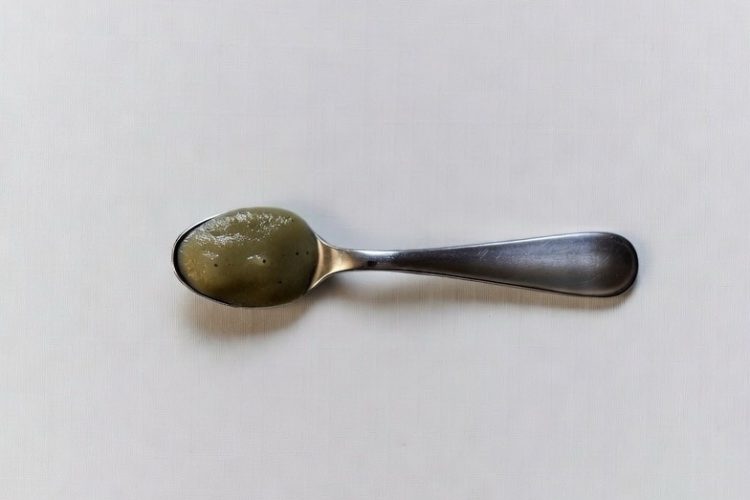Major baby food brands like Beech-Nut and Gerber face lawsuits for heavy metal contamination—arsenic, lead, cadmium, and mercury—in products like rice cereal, sweet potatoes, and carrots. A 2021 Congressional report revealed toxins far above safe limits, linked to autism, ADHD, developmental delays, and brain damage in kids. One in four tested foods fail FSSAI safety standards. In March 2025, a court dismissed a Beech-Nut class action, but appeals and over 100 ongoing lawsuits continue. Parents report heartbreaking cases: toddlers losing speech, gaining aggression, or being diagnosed with autism after eating tainted food. FDA’s “Closer to Zero” plan moves slowly, with weak limits and no binding rules. Brands knew risks but used contaminated ingredients. Families demand recalls, transparency, and real protection—because every spoonful should nourish, not harm.
Long Version
Baby Food Betrayal: Heavy Metals in Beech-Nut and Gerber—Parents Sue for Poisoned Kids
In a shocking revelation that has shaken parents across the globe, major baby food brands like Beech-Nut and Gerber have been accused of allowing toxic contamination in their products, exposing infants and toddlers to dangerous levels of heavy metals such as arsenic, lead, cadmium, and mercury. This betrayal of trust has led to a surge in lawsuits, highlighting severe health risks including neurodevelopmental damage, autism spectrum disorder (ASD), attention-deficit/hyperactivity disorder (ADHD), developmental delays, and brain damage. As families grapple with the consequences, regulatory failures by bodies like the FDA and FSSAI come under scrutiny, with data showing that 1 in 4 tested foods fail safety standards. This article delves deep into the crisis, unpacking the March 2025 Beech-Nut dismissal, ongoing heavy metal contamination cases, real-life horror stories, and the systemic issues fueling this public health nightmare.
The Origins of the Scandal: Congressional Report and Widespread Toxic Contamination
The alarm bells first rang loudly in February 2021 with a groundbreaking Congressional report from the House Subcommittee on Economic and Consumer Policy, which exposed alarming levels of heavy metals in baby food from leading manufacturers. The report detailed how products from Beech-Nut, Gerber, HappyBABY, Earth’s Best Organic, Plum Organics, Sprout Organic Foods, and Nurture contained inorganic arsenic, lead, cadmium, and mercury—environmental contaminants absorbed from soil and water during crop growth. These toxins were found in concentrations measured in parts per billion (ppb), often exceeding safe thresholds like the Maximum Allowable Dose Level (MADL) and Maximum Residue Limits (MRL).
A follow-up report in September 2021 revealed even more damning evidence, showing that Gerber’s organic baby food, including rice cereal, averaged 65.6 ppb inorganic arsenic, while other brands routinely used contaminated ingredients without adequate internal testing standards. Brands like Parent’s Choice (Walmart) were also implicated, with the subcommittee criticizing the industry for prioritizing profits over food safety and nutrition. This toxic contamination isn’t isolated; it’s a systemic issue tied to industrial farming practices that introduce heavy metals into staples like sweet potatoes, prunes, carrots, and rice cereal—common in both conventional and organic baby food.
The Deadly Quartet: Arsenic, Lead, Cadmium, and Mercury’s Toll on Young Minds
Heavy metals pose profound health risks to children, whose developing bodies absorb these toxins more readily than adults. Inorganic arsenic, a known carcinogen, disrupts cellular function and has been linked to reduced IQ and behavioral issues. Lead, even at low levels of 10 ppb, can cause brain damage, developmental delays, and ADHD, as seen in FDA guidelines for baby yogurts and puddings. Cadmium accumulates in kidneys and bones, contributing to long-term neurodevelopmental damage, while mercury impairs cognitive development, leading to ASD and other disorders.
Scientific reviews emphasize that excessive exposure through infant foods can result in irreversible harm, with studies showing correlations between heavy metal intake and conditions like autism spectrum disorder and attention-deficit/hyperactivity disorder. For toddlers, the cumulative effect from repeated consumption amplifies these risks, turning what should be nutritious first foods into vectors for lifelong disabilities. Imagine the heartbreak of watching a child’s potential dimmed forever by something as innocent as a jar of pureed carrots—these metals steal futures, one spoonful at a time.
Horror Stories: Parents’ Nightmares of Developmental Delays and Poisoned Futures
Behind the statistics are heartbreaking personal accounts that bring the crisis into sharp, agonizing focus. One mother from Southern California described how her son’s autism diagnosis followed consumption of Gerber and Beech-Nut products laden with heavy metals, leading to speech delays and sensory issues that shattered her dreams of hearing his first words. In another case, a child exposed to Earth’s Best Organic baby food developed severe neurodevelopmental damage, with parents reporting aggression, IQ loss, and behavioral deficits that persisted into school age, turning joyful playtimes into battles of frustration and isolation.
A particularly poignant story involves a 4-year-old boy with four times the normal arsenic levels in his blood, exhibiting full-blown autism by age 3—symptoms that reversed after rigorous heavy metal detox, restoring his speech and social skills by age 6, but not before years of parental anguish and sleepless nights wondering “what if.” Families in Cleveland have shared similar tales, with 95% of tested baby foods containing toxins, resulting in a rise in children’s hospitals treating cognitive delays and ADHD. These horror stories underscore the human cost: parents watching their infants regress, burdened by medical bills and emotional trauma from what they believed were safe, nutritious options. The betrayal cuts deep, as trusting families feed their little ones poison disguised as sustenance, forever altering lives in ways no apology can mend.
The March 2025 Beech-Nut Dismissal: A Setback, But Far From Over
In March 2025, a Northern District of New York court dismissed a consolidated class action against Beech-Nut, ruling that plaintiffs lacked standing to prove economic harm from purportedly contaminated baby food. The decision, issued on March 19, 2025, followed a Second Amended Consolidated Complaint alleging breaches of warranties and fraudulent misrepresentation over heavy metals in products like rice cereal and sweet potatoes. Beech-Nut argued that parents paid for “safe and healthy” nutrition but received tainted goods, yet the court sided with the company for the second time, citing insufficient evidence of direct injury—a ruling that left families feeling dismissed and devastated.
However, this dismissal is not the end. Appeals are underway, and as of August 2025, Beech-Nut faces renewed scrutiny in multidistrict litigation (MDL) where manufacturers must defend against claims of neurodevelopmental damage. Legal experts note splits in New York federal courts, with some allowing similar suits to proceed, signaling that consumer protection battles over toxic contamination will persist, offering a glimmer of hope amid the despair.
Ongoing Heavy Metal Contamination Cases: A Wave of Class Actions and MDL
The litigation landscape remains active, with over 101 active lawsuits by March 2025 against brands including Gerber, Beech-Nut, and Walmart’s Parent’s Choice. These class actions allege that companies knew of the contamination but failed to warn consumers, leading to autism and ADHD in children. In October 2025, baby food makers moved to exclude causation experts in the toxic metals MDL, but courts have ruled that defendants like Gerber must face nationwide claims for brain damage from heavy metals.
North Carolina and other states see rising filings, with parents suing over contaminated ingredients in organic baby food from HappyBABY and Plum Organics. Product recalls, such as Sprout Organic Foods’ September 2025 pull of sweet potato pouches, highlight ongoing risks, fueling multidistrict litigation that demands accountability. Each case represents not just legal proceedings, but desperate parents fighting for justice, their voices rising in a chorus against corporate negligence.
FDA Failures: The Slow March of Closer to Zero and Regulatory Lapses
The FDA’s response has been criticized as inadequate. Launched in 2021, the Closer to Zero initiative aims to reduce contaminants in baby food through iterative actions, but progress is glacial. In January 2025, the agency set action levels for lead at 10 ppb in certain products, yet advocates argue these don’t go far enough, prioritizing industry disruption over children’s health.
Critics point to FDA’s failure to enforce binding limits, allowing heavy metals to persist despite the Baby Food Safety Act’s push for stricter standards. As of October 2025, the agency acknowledges the vulnerability of infants but has been accused of regulatory failures that enable toxic contamination to continue unchecked, leaving parents feeling abandoned by the very institutions meant to protect their most precious ones.
FSSAI Data: Global Alarms with 1 in 4 Foods Failing Safety Standards
Internationally, India’s FSSAI has raised red flags, with data indicating that 1 in 4 tested baby foods fail safety standards for heavy metals like lead and arsenic. Their regulations under the Food Safety and Standards (Contaminants, Toxins and Residues) set maximum limits, but compliance issues mirror U.S. problems, with contaminated ingredients in rice cereal and prunes exceeding MRL. This underscores a worldwide crisis, where even organic baby food isn’t immune, prompting calls for global consumer protection reforms that could prevent more families from enduring this silent epidemic.
Contaminated Ingredients and Brands Under Fire
Key culprits include rice cereal, which absorbs arsenic from soil, and root vegetables like carrots and sweet potatoes that pull in cadmium. Brands like Gerber and Beech-Nut have admitted to using high-metal ingredients, with internal testing standards often ignored. HappyBABY, Earth’s Best Organic, and Sprout Organic Foods face similar accusations, with recalls highlighting the need for better sourcing and transparency—steps that could have spared countless children from harm.
A Call to Action: Protecting the Next Generation
Parents are urged to demand product recalls, support the Baby Food Safety Act, and opt for homemade alternatives where possible. As lawsuits mount and stories of developmental delays proliferate, it’s clear: the industry must prioritize food safety over profits. This crisis demands immediate regulatory overhaul to safeguard infants and toddlers from environmental contaminants, ensuring nutrition without the shadow of toxic betrayal.
In the end, this is more than a scandal—it’s a wake-up call for consumer protection, holding giants like Beech-Nut and Gerber accountable for the poisoned kids in their wake, and reminding us all of the fragility of trust when it comes to our children’s futures.

Hashtags For Social Media
#babyfood #toxicbabyfood #gerber #beechnut #babysafety #parentalert #momlife #dadlife #healthybabies #babyhealth #toxicmetals #foodcontamination #babyfoodrecall #autismawareness #adhdawareness #fda #closertozero #childhealth #foodtoxins #safebabyfood #parentingnews #foodlawsuit #heavymetals #protectourkids #babycare #organicbabyfood #healthybaby #toxinfree #parentingtips #foodtransparency
Related Questions, Words, Phrases
what baby foods contain toxic metals | are gerber and beech-nut baby foods safe | which baby food brands have heavy metals | baby food lawsuit 2025 details | what did the 2021 baby food congressional report find | are toxic metals linked to autism in babies | how dangerous is arsenic in baby food | what heavy metals are found in baby food | how many lawsuits are against beech-nut | why is gerber being sued | is it safe to feed my baby rice cereal | what does fda closer to zero mean | how to check baby food for toxins | what baby foods tested high for lead | which brands failed baby food safety tests | what is the beech-nut class action lawsuit | what foods cause developmental delays in kids | how to choose safe baby food brands | is sweet potato baby food contaminated | what metals cause brain damage in babies | are there toxins in baby carrots | what is the latest on baby food heavy metals case | which baby foods exceed fssai safety limits | how can i avoid heavy metals in baby food | what are symptoms of metal poisoning in toddlers | why hasn’t fda banned toxic baby foods | how to identify safe organic baby foods | are store-bought baby foods toxic | what did parents report after feeding tainted baby food | how many baby foods failed safety tests | is homemade baby food safer than packaged | what are the effects of lead exposure in infants | can toxic baby food cause adhd | are baby food companies hiding contamination | what is being done about heavy metals in baby food






